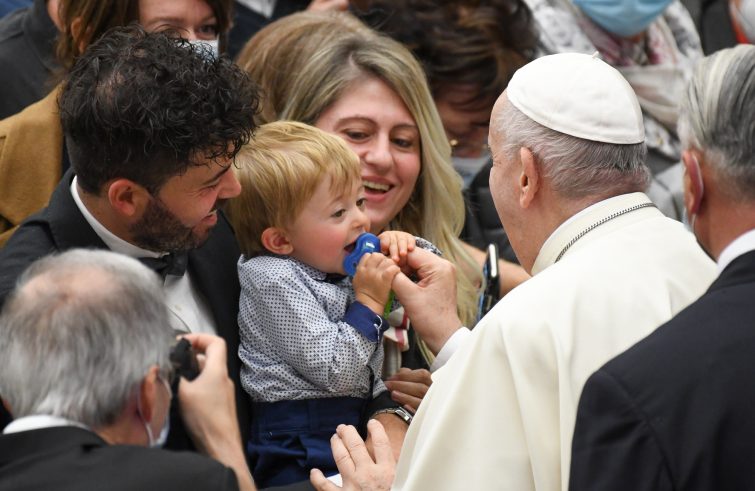
“The criticism of every evangelical novelty is not only of our time, but has a long history behind it. History always repeats itself,” Francis said in the catechesis of Wednesday’s general audience in Paul VI Hall, dedicated to the theme of Christian freedom. As in Saint Paul’s time, “fundamentalists” today attack over every novelty. In fact, Saint Paul says, “for those who follow Christ, it no longer matters if they are Jewish or pagan. The only thing that counts is faith working through love.” “Paul’s detractors – those fundamentalists who had arrived there – attacked him over this novelty, claiming that he had taken this position out of pastoral opportunism, or rather to “please everyone”, minimizing the demands received from his narrower religious tradition.”
“To accept that we have been liberated by Christ – his passion, his death, his resurrection – is to accept and bring fullness also to the different traditions of each people”,
Francis remarked, reminding the faithful that for St. Paul “to welcome faith involves renouncing not the heart of cultures and traditions, but only that which may hinder the newness and purity of the Gospel.” “Because the freedom obtained through the death and resurrection of the Lord does not enter into conflict with cultures or with the traditions we have received, but rather introduces into them a new freedom, a liberating novelty, that of the Gospel”, the Pope said: “In the call to freedom we discover the true meaning of the inculturation of the Gospel. What is this true meaning? Being able to announce the Good News of Christ the Saviour respecting the good and the true that exist in cultures.” “It is not easy!”, for “there are many temptations to seek to impose one’s own model of life as though it were the most evolved and the most appealing.”
“How many errors have been made in the history of evangelisation by seeking to impose a single cultural model!”, the Pope exclaimed, adding extempore: “Uniformity as a rule of life is not Christian! Unity yes, uniformity no!”.
“At times, even violence was not spared in order to make a single point of view prevail. Think of wars”, Francis denounced: “In this way, the Church has been deprived of the richness of many local expressions that the cultural traditions of entire peoples bring with them.” “But this is the exact opposite of Christian freedom!”, the Pope reminded the faithful, recalling the positive example of the apostolate established in China with Father Ricci. Christian freedom entails “the duty to respect the cultural origin of every person, placing them in a space of freedom that is not restricted by any imposition dictated by a single predominant culture”, is the Holy Father’s guidance.
“Speaking of the Catholic Church is not a sociological denomination to distinguish us from other Christians; Catholic is an adjective that means universal: catholicity, universality”, Francis remarked: “The universal, that is Catholic, Church, means that the Church contains in herself, in her very nature, an openness to all peoples and cultures of all times, because Christ was born, died and rose again for everyone.” “Besides, culture is by its very nature in continual transformation”. The Holy Father expounded: “If one thinks of how we are called to proclaim the Gospel in this historical moment of great cultural change, where an ever more advanced technology seems to have the upper hand
If we were to speak of faith as we did in previous centuries, we would run the risk of no longer being understood by the young generations.”
“The freedom of Christian faith – Christian freedom – does not indicate a static vision of life and culture, but rather a dynamic vision, and vision that is dynamic even in tradition”, Francis pointed out.
“Let us not claim, therefore, to possess freedom”,
the final appeal: “We have received a gift to take care of. Rather, it is freedom that asks each one of us to be constantly on the move, oriented towards its fullness. It is the condition of pilgrims; it is the state of wayfarers, in continual exodus: liberated from slavery so as to walk towards the fullness of freedom.”












